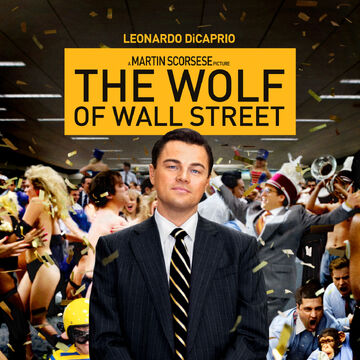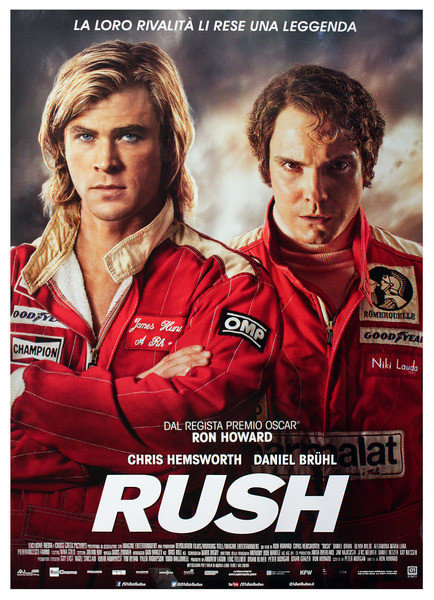So I succumbed to the coercions of my digital puppetmasters and watched The Social Dilemma on netflix, and it really was fascinating. The various former tech insiders were engaging, and I learned a fair bit about the machinery of this manipulation-economy that I sort of intuitively figured but never really understood. Pretty slick production overall.
I actually rewatched it my older daughter who’s right in that early age range that they really highlighted as being damaged by social-media stuff, because I think a healthy dose of tech-paranoia is going to be important for any kid these days.
I watched that also.
I’m comfortable with my decision to never have a Facebook or Twitter account.
I work in that industry and with pretty much every one of the companies represented in the documentary (is that what you’d call it? Drama-mentary maybe?).
I have very mixed feelings about what and how things were presented. There were a number of examples that were bang-on, but there was also a lot of dramatization for effect. I wish that what was presented was more of a true documentary without the drama because I think that view is critical for people to have in order to make informed opinions. Sadly, if you were to base all your opinions off of that piece, I think that you got a pretty biased view of what is _really_ going on.
There’s no question that the vast amount of data that we have access to puts us all as rats in a digital laboratory. Mind you, the data we have access to is in anonymous form... we are not supposed track back to your real name and / or address, and it would be big trouble for those who did and got caught, even though re-identification is technically possible. The industry does a very good job of self-regulating on this item. PII is not maintained with anonymous channel data in a co-mingled way and significant efforts are taken to separate the two. Physical and logical methods, including restricting individuals to one side-access (individuals can have access to either PII or anonymous data but not both) are common place.
There’s also no question in my mind that the data is used to mathematically optimize environments to maximize user engagement. But frankly, who wouldn’t want that? Many of us here can remember the old BP before we migrated to the new platform. We’d all agree that user experience is a huge consideration and incredibly important for adoption and continued use (damnit... I wish we still had rubies). The way this optimization was presented, however, suggested that it’s done with nefarious intention. I do not believe that for a second. What I believe is that the data available to drive optimization models for the UX and user engagement are incredibly efficient (and this goes well beyond social media platforms to extend to your IPhone, etc.). The user experience is so tweaked at this point, it feels like these platforms and devices are core to our being — and that’s scary to say. But nefariousness? No. Just incredibly good optimization processes doing what they do... That said, one has to take note of the side effects of how optimized these systems are for getting and holding your attention. More on that side-effect in a second.
What I, perhaps, take issue with is the share of responsibility placed on the platforms relative to the individual users. That is, while there is both great good and great bad that comes as a result of the use of these platforms, I don’t think that we can take the good without accepting the bad, to a degree. Individual users have to take some responsibility in terms of their consumption... judging for themselves both, appropriate consumption and veracity of what is being consumed. Net, net... people should be a lot more responsible and smarter consumers than they are. Sadly, that’s obviously not the case.
That said, working with ML / AI pretty much ever day, I know what’s possible with the data we have available to us. The ability to leverage anomaly detection algorithms to identify fake news is entirely possible, for instance. Moreover, detection of posts that are intended to incite (negative) behavior would also be possible. To that end, if I point the finger at the individual suggesting that they take responsibility, I have to look at the platforms and suggest they take similar responsibility. Ideally, they should leverage the tools they have to help the individuals become more responsible consumers of information by using the same types of algorithms deployed to optimize the platforms to also identify (and mark) these types of posts to help the consumer be more informed consumers. I’ve cited two very simple methods for doing just that, while many more examples obviously exist.
Back to the concept of the side-effects of optimization. As stated in the film, there is a dopamine hit received by the consumers of these systems and dopamine is an addictive neurotransmitter... a very powerful one. The Pavlovian response to notices, likes and positive engagement with others is undeniable. As a cognitive psychologist, this is my greatest source of concern. And while I place responsibility on the consumer to be a smarter / better consumer, part of that definition of smarter / better consumer is recognition that the consumer has a problem — a dopamine addiction. While dopamine isn’t going to cause you to drive your car into a tree or over a little kid on a bike, such an addition is far more likely to rewire the paths in individuals’ brains. With that said, I was let down by the film’s position on this topic. I _do_ think that we have reached a point where dopamine addiction by way of our devices / online media consumption is a legitimate mental / physical health concern. So much so that I suspect it will eventually be covered, explicitly, under mental health insurance policies.
Full disclosure: I have shut down my twitter account. I do, however, maintain a FB and Insta account (without accepting any friends) for information purposes (i.e. school updates, local news). I have no other social media presence aside from BP.







